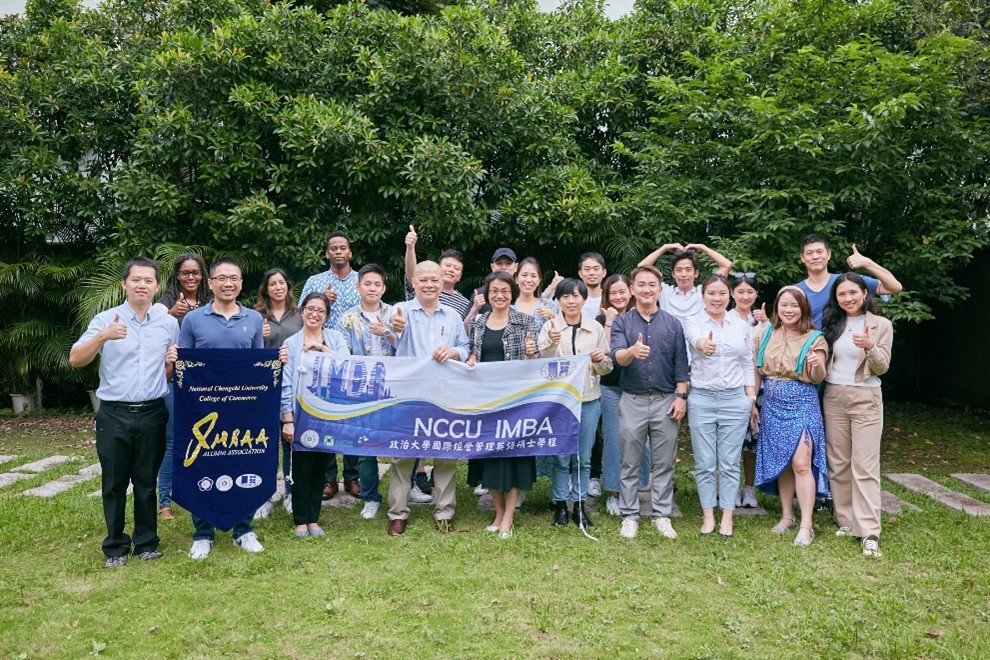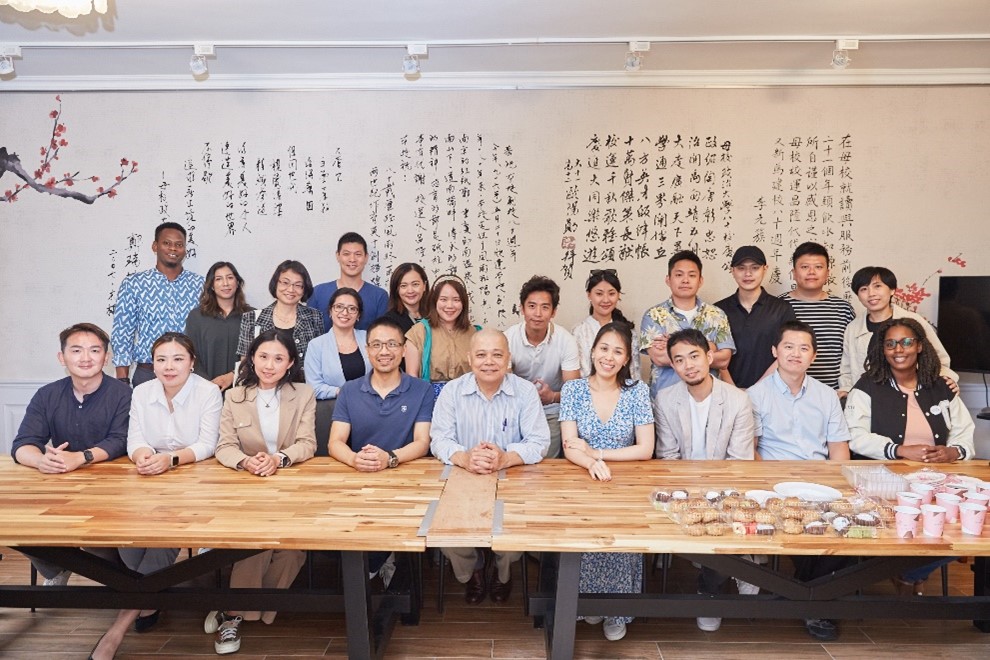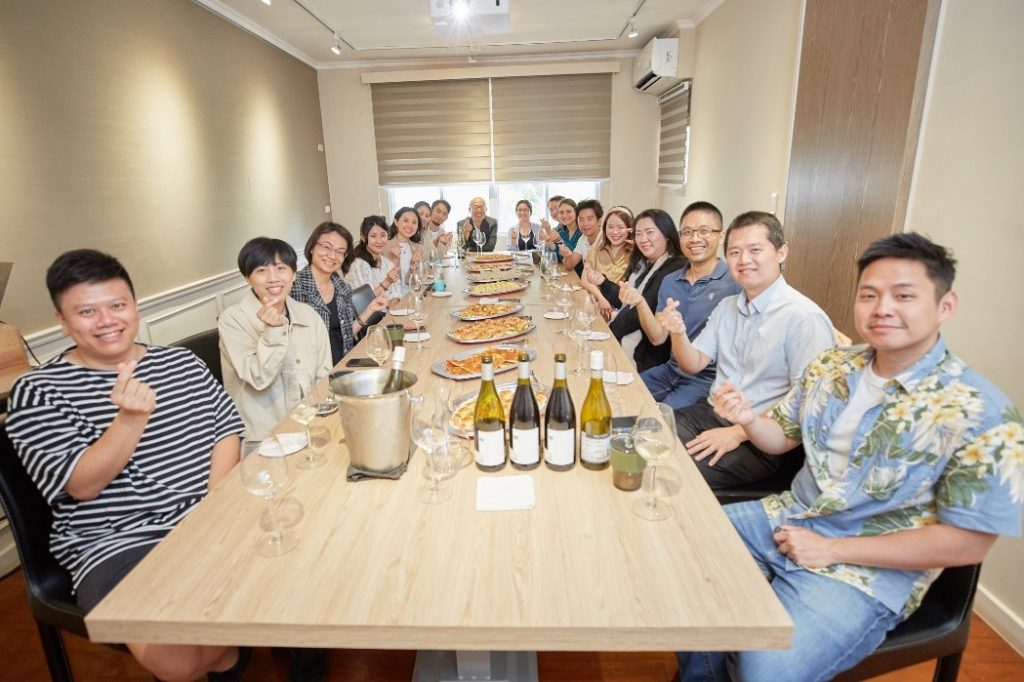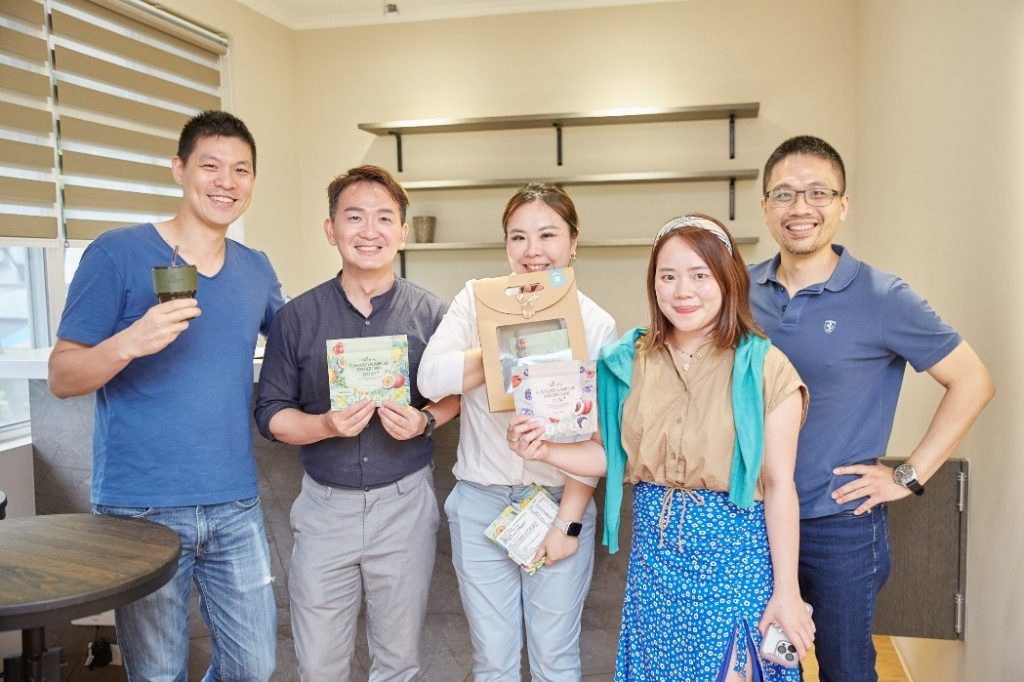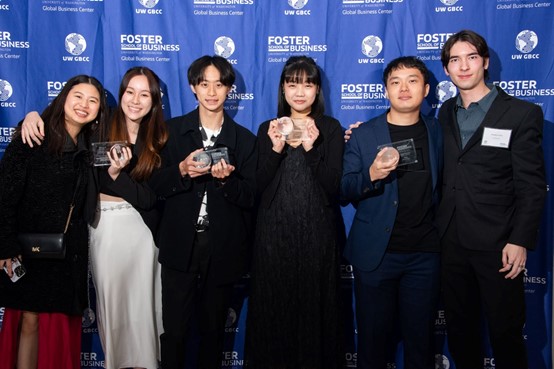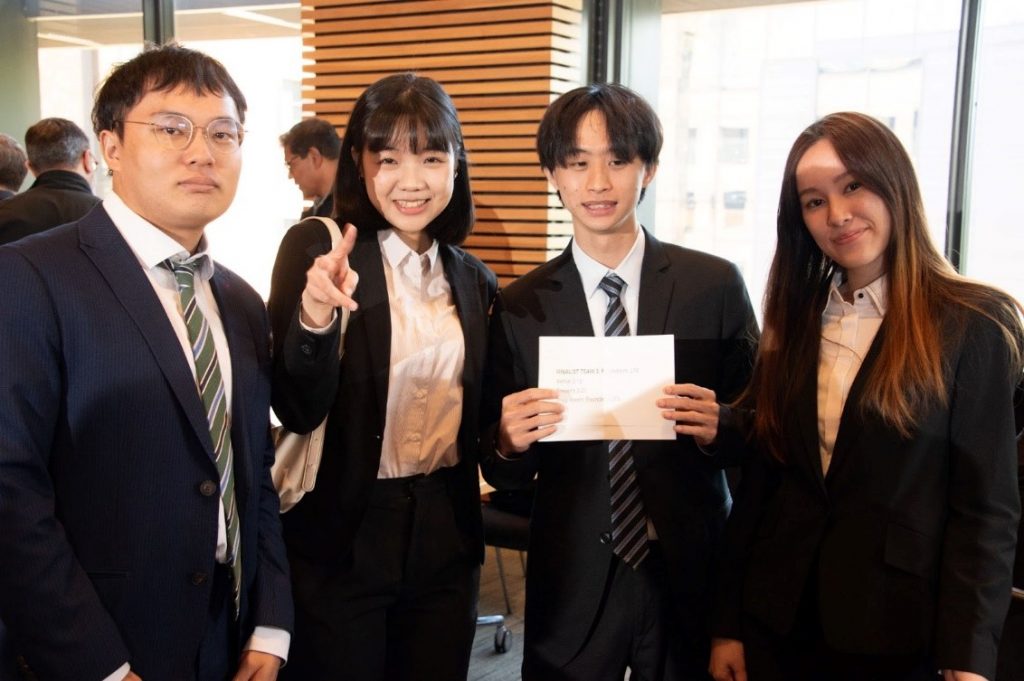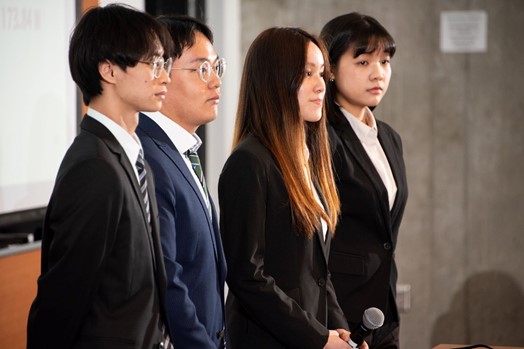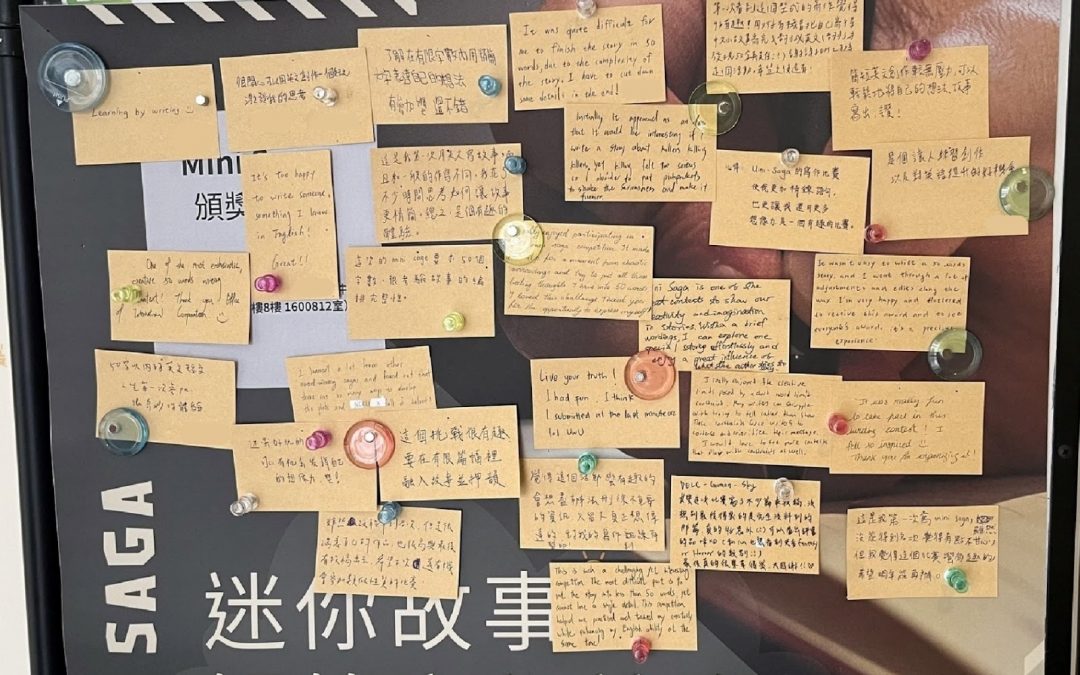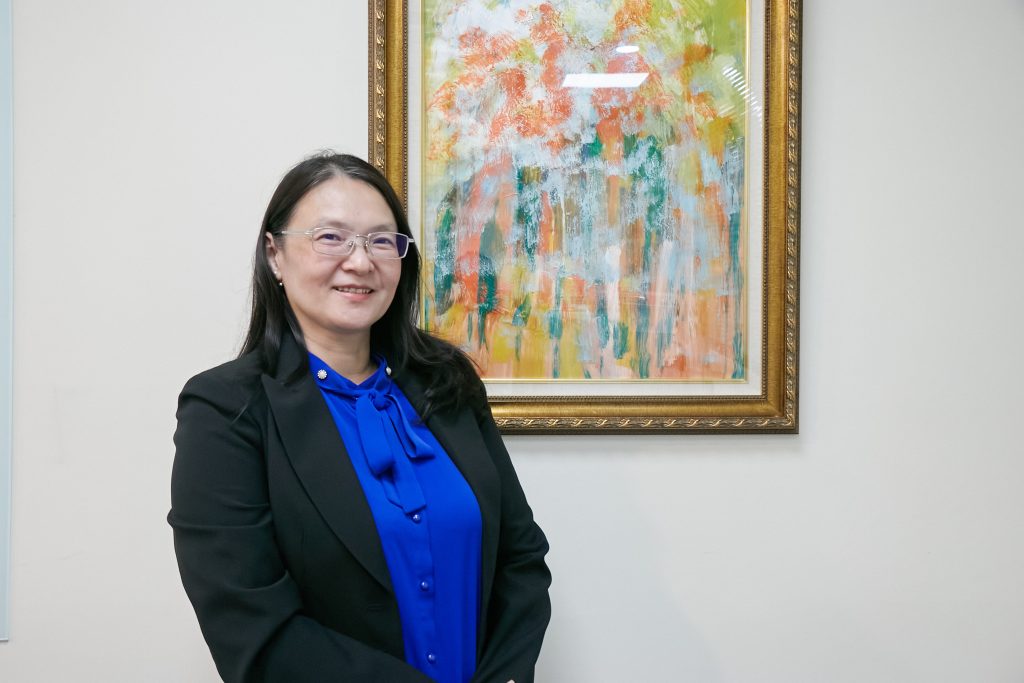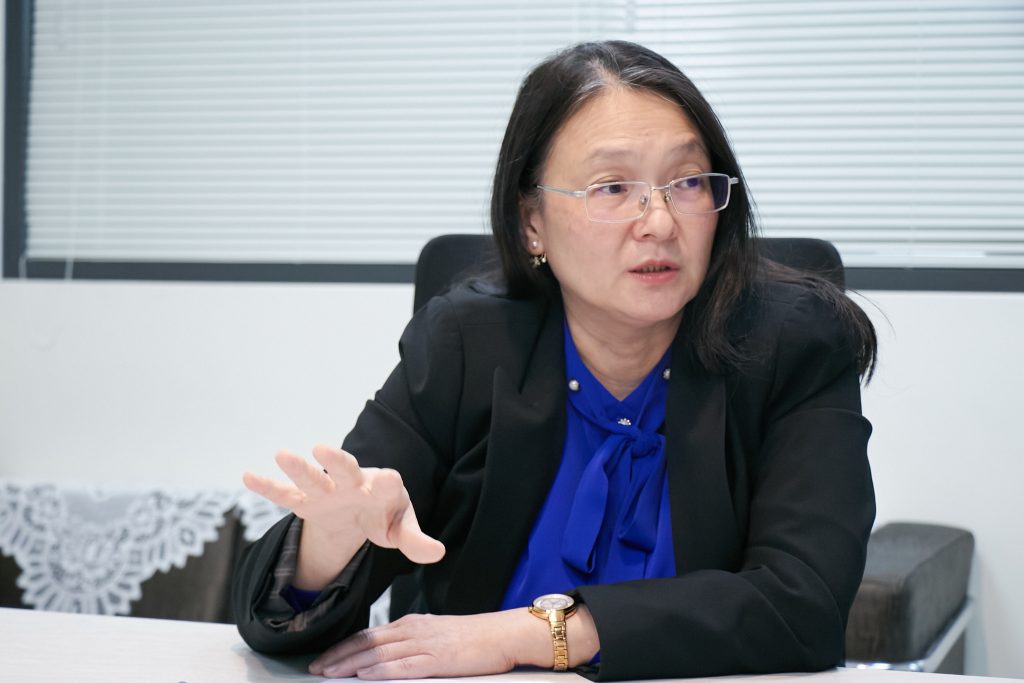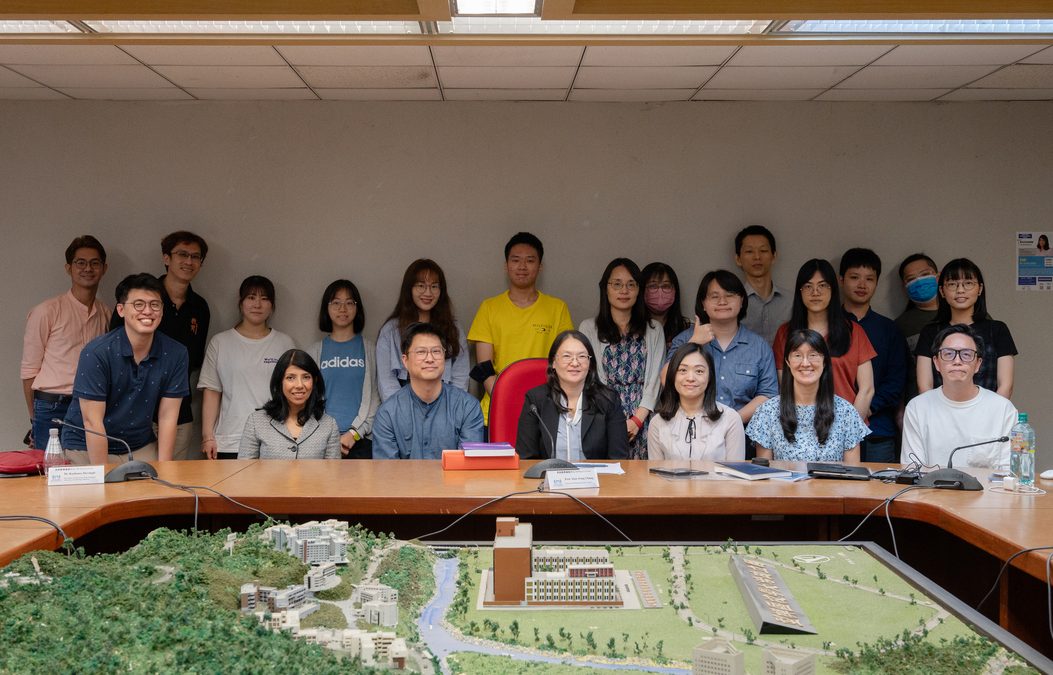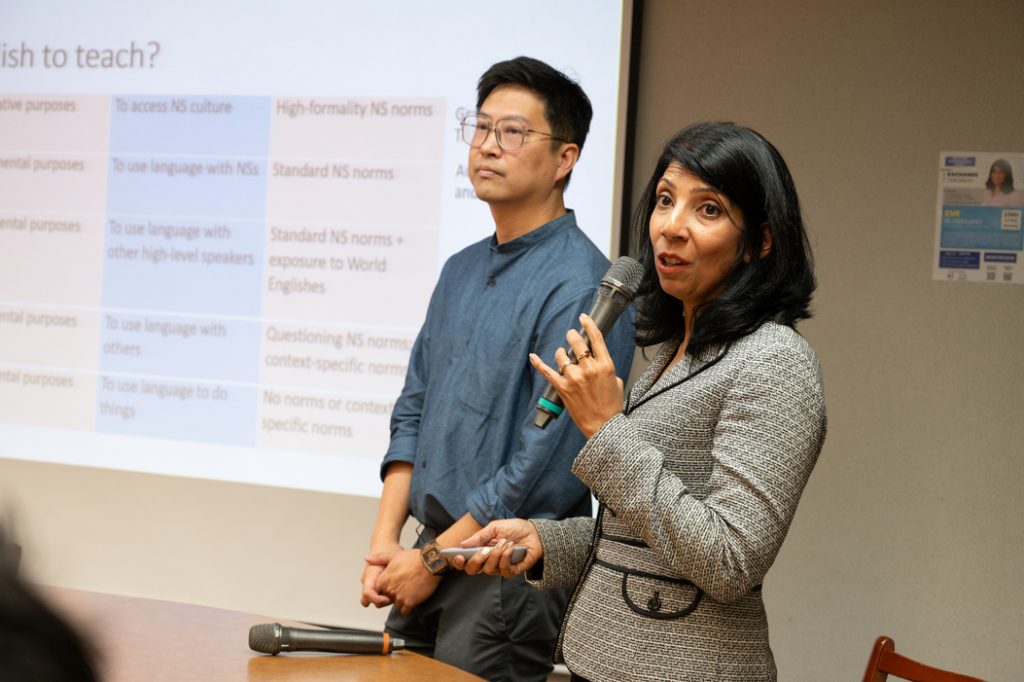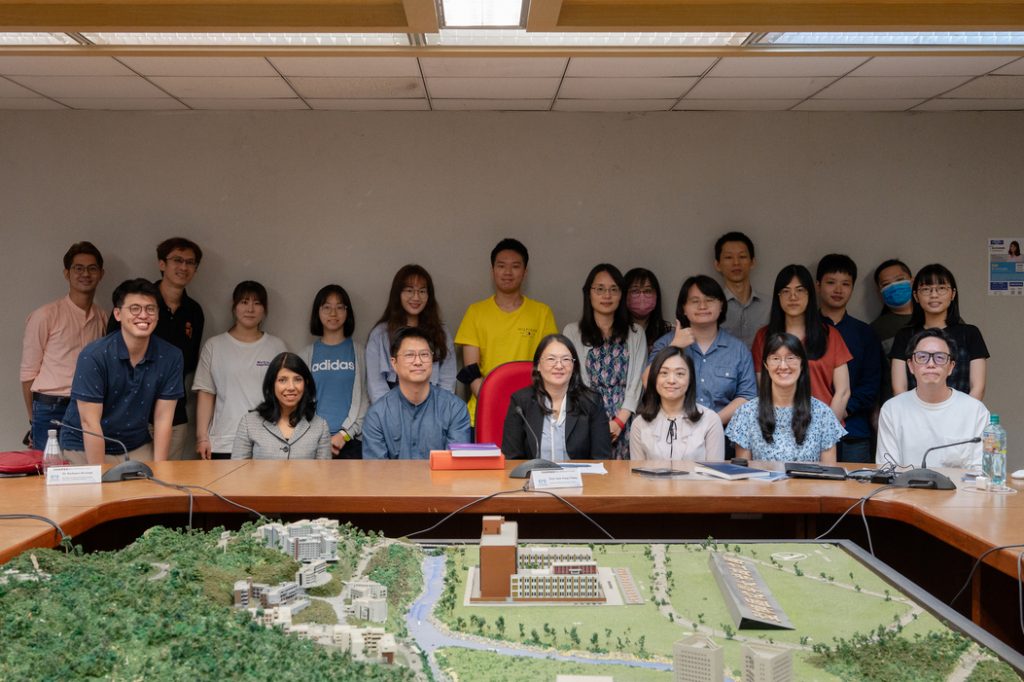【Article by College of Commerce】
On May 25, 2024, an air of entrepreneurial zeal encapsulated the President’s House at NCCU University as alumni from the IMBA program recounted their transitions from ambitious business enthusiasts to accomplished entrepreneurs. The venue brimmed with the collective anticipation of students, alumni, and faculty who convened for the event, all eager to decipher the formula for cultivating a prosperous venture as illustrated by the university’s distinguished graduates.
Mr. Yenlan Lin, the President of the IMBA Alumni Association, commenced the proceedings with an engaging and welcoming address. His speech set the theme of ‘entrepreneurship’ at the forefront, while commending the varied and rich backgrounds of the guest speakers whose expertise spanned supply chain management, savvy retail formulation, and innovative business initiatives. Their hands-on lessons, deeply rooted in the real-world challenges and triumphs of NCCU’s alumni, set an inspired and energetic tone for the discussions that followed.
The first presentation “Wine Wisdom: Navigating the Vine to Virtual Shift in Wine and Culinary Entrepreneurship” featured Elisa Tang, a 2021 IMBA alumna, alongside her business associate and sommelier, Alex Chen. Together, they founded 50/45 Winehaus in 2017, initially a brick-and-mortar wine bar that transitioned to a fully virtual model earlier this year.
Elisa charmed the audience by introducing the playful term ‘winetrepreneur’, marrying her love for wine with her entrepreneurial spirit. She described their challenging journey from operating a physical store to adapting to a virtual business model, however, she assured that their passion for bringing wine knowledge to everyone remains strong. As a testament to this, Elisa enthusiastically invited attendees to seek expert wine advice across their social platforms and even over the phone. Elisa equated their entrepreneurial path to a mini-IMBA program, a sentiment that elicited light-hearted laughter from the audience. Engagingly, Elisa inquired whether anyone had business aspirations, with IMBA Alumni Association President, Yenlan Lin, raising his hand and suggesting that for him entrepreneurship meant financial freedom.
Reflecting on cultural shifts, Elisa contrasted the overlooked prospect of entrepreneurship in the past with its current stature. She stressed that passion not only initiates a business venture but also serves as an anchor through tough times. The duo recounted their pathway from Taiwan’s hospitality sector to their mission of demystifying wine, focusing on market knowledge to tailor their offerings to local preferences and dispel elitist perceptions.
A wine-tasting interlude allowed Alex to showcase the art of wine evaluation. Attendees learned the nuances of observing color, swirling to release aroma, and identifying the subtle flavors that dance on the palate. Alex emphasized the importance of trusting one’s own senses and dismantling preconceived notions about fine wine.
Resuming the presentation, Elisa discussed market strategies that distinguished them, such as being the first wine bar in Taiwan to offer wine by the half bottle on all its selection which fostered a distinctive consumer appeal. They advocated for cost-effectiveness in ambiance, stating that it is the guests who truly set the atmosphere. Their presentation, rich with practical advice and anecdotes, wrapped up by emphasizing the importance of passion and persistence in building a successful venture.
The second session “Kombucha Insights, Opportunities and Challenges” was conducted by Carol Tsou, co-founder of Aplanty, a UK-based company. Carol, who holds a degree in nutrition and possesses expertise in business development, was joined by her co-founder Clint Weng, who has qualifications in business management and biology. Carol initiated the presentation by introducing kombucha to the audience, detailing the fermented nature of the tea and its consequent health benefits. She also underscored the importance of careful fermentation to prevent bacterial contamination.
Carol provided an overview of the growing global kombucha market, with a spotlight on its burgeoning popularity in the UK. She highlighted Aplanty’s innovative approach, developing a powdered form of kombucha, which was highlighted as a strategic product innovation aimed at curbing logistical expenses related to keeping the bottled liquid form refrigerated.
She also introduced the unique additions of guarana for its metabolism-boosting caffeine content and marine collagen for skin health to their kombucha, further setting Aplanty Limited apart in a growingly competitive market space.
With an eye towards the future, Carol outlined Aplanty’s strategic plans for expansion in 2024, noting the significance of their vegan product in line with market trends and consumer preferences. The price point and target market demographics were also discussed with precision, recognizing the nuances of target audience consumer behavior.
In response to an inquiry from alumni Chloe Huang regarding kombucha’s retail availability, Carol addressed commercial viability challenges and the need for consumer education in Taiwan, contrasting it with higher awareness levels in the Western markets.
Professor Jason Tsai, Director of the IMBA Program at NCCU, inquired regarding operational challenges post-launch which in turn elicited Carol’s acknowledgment that, while market education about powdered kombucha remains a hurdle in the UK, introducing and scaling kombucha in milk tea-centric Taiwanese culture presents a more formidable challenge.
At the end of her presentation, Carol provided insightful advice to the alumni about the entrepreneurial journey; highlighting the necessity of a robust partnership and the delicate balance between entrepreneurial activity, full-time employment, and personal life, illustrating the complex reality of navigating such professional crossroads.
The final presentation of the day was delivered by Lynn Cho, a 2017 alumna who has embraced solopreneurship. Lynn outlined her career path which began at Costco to creating and providing online courses centered around product launch strategies, a shift influenced by the surge in online education due to the COVID-19 pandemic.
Lynn’s insights fostered an engaging dialogue on the intricacies of penetrating significant retail spaces, such as Costco. Mr. Yenlan Lin sought Lynn’s perspective on the feasibility of Aplanty’s powdered kombucha placement within Costco’s inventory. In collaboration with Carol, Lynn addressed the operational challenges and stringent volume expectations. In response to an inquiry raised by Elisa Tang regarding any fundamental principles or strategies for negotiating with Costco, Lynn imparted that while everything is open to negotiation, the leverage one holds largely depends on the demand for their product.
Joining the discourse, Professor Foo Nin Ho, Consumer Behavior Professor at NCCU, posed critical inquiries regarding consumer behavior patterns and the ramifications of product returns on suppliers. Lynn clarified that suppliers typically absorb the financial burden of product returns, a revelation underscoring the significance of a tightly managed supply chain.
The session concluded with a networking segment, wherein attendees partook in casual conversations over a selection of refreshments, exchanging insights and drawing inspiration from one another. This event epitomized the translation of academic theories into the tangible realm of entrepreneurial execution, fortifying the bridge between scholastic pursuit and commercial endeavor.
In attendance for camaraderie, alumna Jane Yang from the batch of 2021 remarked on the value of absorbing knowledge from the experiences of others, regardless of her current plans to embark on an entrepreneurial path.
The event titled, “From Passion to Profit: Turning Your Ideas into Successful Ventures”, was a resounding success. It showcased the entrepreneurial enthusiasm prevalent within the IMBA community, providing actionable knowledge and cultivating a nurturing atmosphere for potential entrepreneurs. The event highlighted the indispensable role that passion, determination, and strategic thinking play in the metamorphosis of novel ideas into prosperous businesses.
